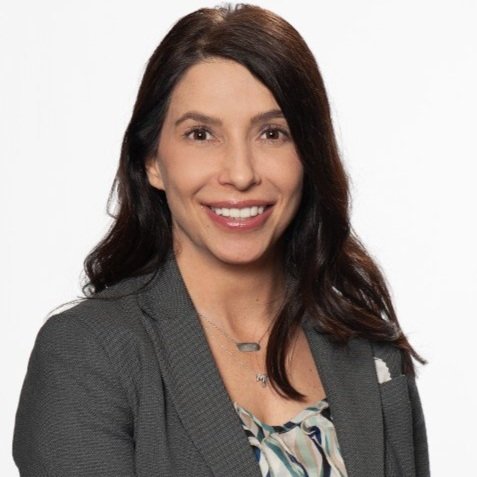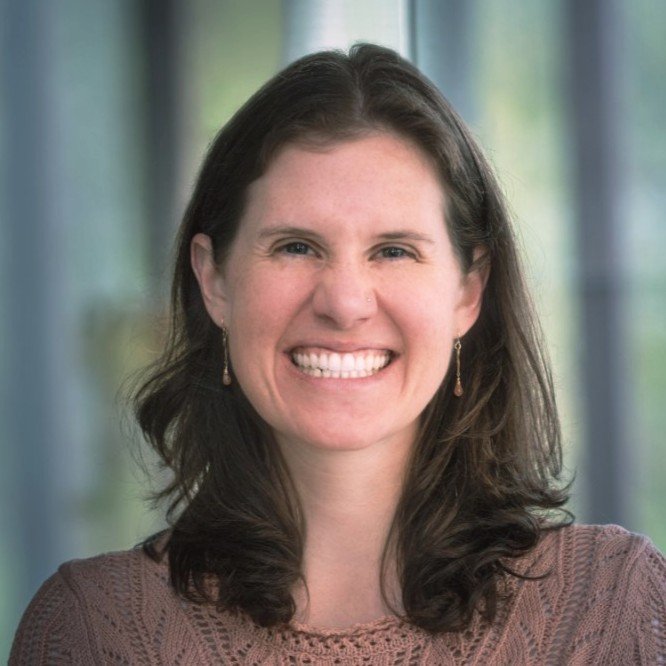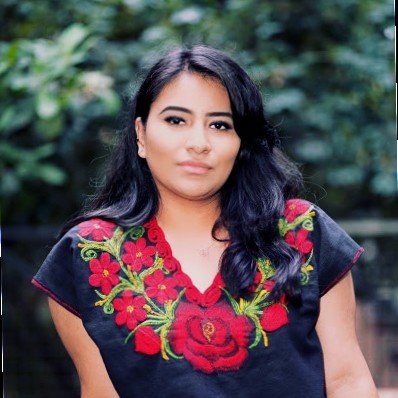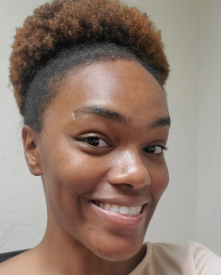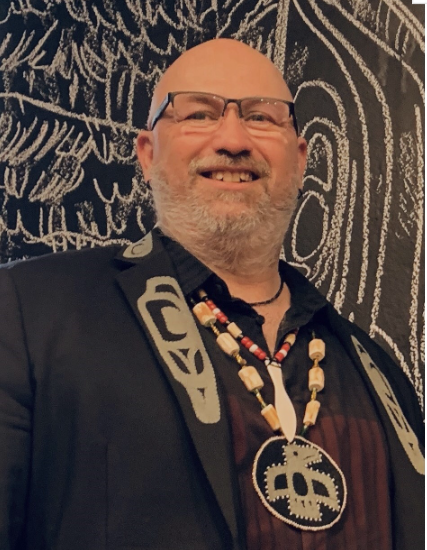Carla Carrell
Senior Director Digital Equity & External Affairs and Government Affairs, Comcast
Interview by Ryan Torgeson & Kim Ilinon
November 09, 2022
In this conversation, we covered topics like her journey with digital equity at Comcast and their internet essentials program, how partnerships and patience shape the work done in DE, her organization’s biggest win of giving free broadband service during the height of the pandemic, the vision of DE at Comcast and the responsibilities they have, and finally some shoutouts to groups like Goodwill Connect, MMRTI, and The Seattle Housing Authority. By far the most enlightening aspect that came up for me was the depth of how the 2020 pandemic affected people in poverty and low-income situations when it comes to broadband and internet access across the state.
Q. What is your definition of Digital Equity, and what about it motivates you? What are you passionate about in this space?
CC: What I think about digital equity is that there is an opportunity and availability for everyone to participate in the digital economy. That means whether it's accessing the Internet for school or things like telehealth, or just engaging with family members and friends from a social perspective. It's being able to have access and understand how to navigate within that digital economy. And I think that's really become evident to me … that there just continues to be an opportunity there for more engagement and partnerships across public and private entities. And I think that's, for me, what makes me passionate about this work in this space - that it requires partnerships. Quite candidly. It just requires partnerships.”
It [also] requires partnering in a way that maybe you don't traditionally think about. And there are many reasons for that. It’s awareness, and getting the word out. It required schools sharing information, it required different ways of thinking about How do we get the word out without the assumption that we're promoting a company?
We're more so sharing an opportunity for a program for folks that, for example, could get Internet high-speed broadband for under $10.00. So I think it was a shift in our mindset as to how we thought about getting folks connected and people connected, as well as how to approach it with partnership; and that makes me excited, that makes me passionate. That we can make a difference. But it requires us working together to ultimately drive impact.
Q. What values and/or principles are important for everyone in this space to do good work?
CC: Partnership is critical. And that, to me, goes into my value or principle of creativity - which is out of the box thinking. So not approaching this traditionally or how we would normally go to market with a product or service. But thinking about how we approach it out of the box, being creative. Breaking down “we've never done this”, or “we've always done that”. So just approach it differently.
I think what is also required and important for this is consistency. So if you're going to start to partner and you can't just stop because maybe you don't see the impact right away, it takes time, it is complex. Digital equity takes time, and there's a variety of complexity underneath that than just the what's on the face. So you have to be consistent, and you have to be diligent. And so those two things may not come quickly, but you have to stick with it.
And ultimately, it's about having accountability. Meaning that if you're trying something and you're working with a partner and it may not seem like It's working great, you take a step back and you reevaluate. Being accountable to the end result, and the end impact. And if that doesn't look like that's going to be possible, or that there needs to be a redirect, then just have the accountability to that end result.
Q. What have been big wins for you and how did they happen? What sorts of support were needed for them?
CC: I reflect upon 2020 where you know, honestly, I work for an internet service provider, and everybody approached it a little bit differently. When I say everybody I'm talking in the frame of folks or companies or organizations that provide the internet. Really, my primary goal was working on digital equity and supporting those initiatives and something that made me really proud that I would call a win was seeing how Comcast maneuvered the pandemic.
What I mean by that is, we’re a big company and oftentimes with a big company, making decisions and pivoting quickly doesn't always happen. There are just a lot of checks and balances and decision-makers, et cetera. But when the pandemic began in early March and April the company recognized quickly that it was a crisis. And not only do we already provide our affordable internet program (Internet Essentials), but the company acknowledged that we had to approach it, or maybe package it differently, based on the needs of what was happening.
The company quickly made the decision to offer two months for free. They eliminated qualifications or eligibility requirements, no questions asked. We also created a tool or vehicle that would allow us to partner with nonprofits, CBOs, schools, etc, where we would provide two months of the service, and then the partner would be able to support or sponsor the end users.
With federal funds available, many partner organizations wanted to be able to support connectivity for end users. In that case, maybe a student, a family or an individual, or a senior citizen - what could they do to support. Comcast provides two months of their service and the partner would be able to support/sponsor. This eliminated having to worry about paying for their service through the pandemic. And to me that was huge. It was a great example of these partnerships that I mentioned. It was just a fresh way of thinking about it. It was about not getting bogged down in bureaucracy, but really what needed to happen, and to do it quickly. It was the way you have to do it - it wasn't done to get more customers. It was done because it was just quite simply the right thing to do in a crisis, and that made me proud.
We quickly created a tool or vehicle that would allow us to partner together with folks, where we would provide two months of the service, and then the partner would be able to also come in and support or sponsor the end users. So that individuals could get their Internet for free without having to worry about that through the pandemic. It was a great example of these partnerships that I mentioned. It was just a fresh way of thinking about it. It was about not getting bogged down in bureaucracy, but really what needed to happen, and to do it quickly - that for me was huge. It was the way you have to do it - it wasn't done to get more customers. It was done because it was just quite simply the right thing to do in a crisis, and that made me proud.
“Digital equity takes time, and there's a variety of complexity underneath that than just the what's on the surface. So you have to be consistent, and you have to be diligent.”
Q. What is your organization’s goal in moving towards digital equity? What steps are being made by your organization to reach that vision?
CC: We've had a vision, and we've understood that this was a responsibility for us as well as something that we know we want to solve. And we created this program, as mentioned ten years ago, with that acknowledgment.
We didn't know a pandemic would be coming, but there were many learnings as a result of the pandemic. There has been more awareness, more partnerships, more funding. Resources that had never been available in this space previously. I look at it as “how do we take something that was unfortunate or negative and make that an opportunity?”. I think those pieces were what came out of it. We continue to move toward digital equity, to have everyone connected to the Internet at home with a high-speed connection, that's the end goal.
Having that broadband adoption, an affordable Internet program that we've had for the past decade. I think it's fair to say that we've been the most supportive internet provider for the affordable connectivity program which is that Federal Government subsidy. Just meeting with partners, sharing the information and making clear that folks don't have to select us as their provider, but they just need to know that this subsidy is available, and that's half the battle. And using that experience that we had for our program, Internet Essentials, and using it toward how we approach the affordable connectivity program.
And I think, continuing that partnership, and as I mentioned earlier these partnerships are critical. The steps we've made since the pandemic are we've established new partnerships, we've thought about it differently. Similar to what I think we all have to do, but just really trying to have a fresh approach to what is needed to meet people where they are, and to ultimately end back where I started. Where everyone can get that connection to the internet at home with a high-speed broadband connection.
Q. What’s an example of some good work so far and who’s been doing it? Who would you like to give a shout-out to?
CC: A piece of the equation that maybe hadn’t been identified as clearly as it is now is the criticality and importance of digital navigators. Having folks that can go into communities where they are a trusted resource, either a part of that community or part of an organization that's trusted - that is a really critical part of this work. We saw a lot of acknowledgement that this is an important role, as it has to be a part of this conversation for digital equity.
There are some organizations that are ahead of the curve, if you will, and I would say an example are the Goodwills across Washington State and the Goodwill Connect digital navigator program. Each Goodwill entity across the State of Washington has a digital navigator engaged and supporting within their community. Grants provided from the State of Washington and other funding has been critical to building a program like Goodwill Connect.
The Seattle Housing Authority maximized funding to also build out a navigator program. They are a trusted resource working within the community, it just makes a lot of sense to meet people where they are.
Multimedia Resources and Training Institute or MMRTI, where they also have a digital navigator program. MMRTI brings in youth from the community and essentially trains them on multimedia and other opportunities to build out various skill sets. They build digital skills training and work with folks in the community that need to get connected to the Internet and also learn about digital skills. I was introduced to this organization earlier this year, and they’re just doing amazing work. Just thinking about “How do you meet people and become a trusted resource?” This work is so critical and important to address broadband adoption barriers. It is also highly supportive of the immigrant community in Seattle … so they partner quite closely with the Seattle Housing Authority. What I will tell you is they were sort of doing the navigation before it became, what is today, or before it became well known. We’ve been partnering with them to support additional digital skills classes with language support. Comcast will join them during their classes to help support questions or folks that need a connection. We also provide them laptops to distribute to folks as they get connected to either Internet Essentials or the Affordable Connectivity Program.
The pandemic required us all to make changes quickly. One of the things that we acknowledged was that while the goal is to support and connect folks in their home with the high speed Internet connection, it's not a reality for everybody. We created what we call Lift Zones - gigabit Internet that we offer at community spaces, community centers with partners. Folks can go to those spaces which are safe, they're clean, and they can rely on them to connect to the Internet. This also supported the partner so they did not have to worry about increasing their bandwidth for their business needs. This is a great example of a quick pivot, that included several partnerships to connect 100+ Lift Zones across the State of Washington.
It's a vast list but as mentioned in the pandemic we made a lot of quick, quick adjustments. Whether it be housing, instability or whatever that may be. We created what we call lift zones - gigabit Internet that we offer at community spaces, community centers, and community partners. And so folks can go to those spaces because they're safe, they're clean, and they can rely on them to connect to the Internet. We created over a hundred lift zones across the State of Washington where folks could go, and that organization didn't have to worry about increasing their bandwidth. So that's one of the partnerships that we have, and the reason I use that example is that it was a quick pivot and a quick change, but it's also a number of partnerships, because we have over a hundred of them across the State. So Boys and Girls Clubs, it’s Goodwills, in Bellingham, we have Lighthouse Mission. There's so many partnerships there across Seattle just thinking about where the most vulnerable people are, and how we can help them.
Learn more about Comcast’s digital equity work.
Connect with Carla Carrell on LinkedIn.

